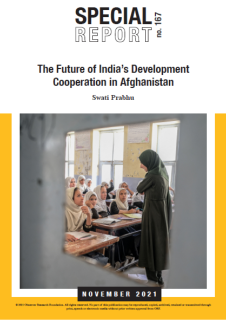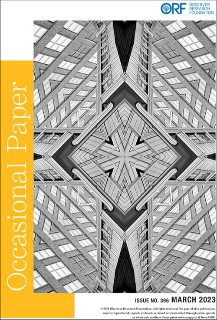To what extent could Vasili Mitrokhin be considered a trustworthy source with access to sensitive details regarding the KGB#146;s operations abroad, when he was in service?
Mitrokhin served in the operational division of the Foreign Intelligence Directorate of the KGB till 1956. He was then removed from the operational division because of his unsatisfactory performance and posted in the Archives in which he continued to function till his retirement in 1985----that is, for a total of 29 years. During this period, he was not posted abroad again. Nor was he sent out on foreign travel. This speaks of his poor professional reputation in the organisation. Would a man considered incompetent and untrustworthy for operational work be put in a job where every day he would have access to hundreds of sensitive operational files? Unlikely.
What the Russians call Archives is called the Record Room by other countries.. That is where, all files in which no action is required any longer are sent for keeping in safe custody. A rule of caution generally followed by intelligence agencies is that they send only the non-actionable files of the administrative and analysis branches to the Archives or the Record Room. Operational files are not sent to the Archives, even after an operation is closed. They remain in the custody of the operational branch concerned. Moreover, the personal particulars of a source and the modus operandi followed by the controlling officer in handling him such as how and where he was met, how he was compensated etc are kept in the custody of the officer controlling an operation.
All intelligence agencies more or less follow the same rules of security in order to safeguard the identities of their sources and the modus operandi of the operation. Moreover, no one, however trustworthy, is allowed to work alone in a branch containing operational files. Generally, there has to be at least two persons present, to prevent the possibility of one person taking advantage of his being alone for Xeroxing or photographing files.
If Mitrokhin#146;s story is to be believed, none of these security precautions would seem to have been followed in the KGB. The opertional files of branches dealing with dozens of countries were allowed to be kept in one place in the central Archives, the personal particulars and details of the modus operandi were kept in the files and Mitrokhin was able to work alone day after day, hour after hour--undisturbed--taking down notes from the files and taking the notes out in the evenings. Moreover, according to him, it took 12 years for all the files to be transferred from one building to another, thereby giving him adequate time to go through many of them and take down notes. One finds it very difficult to believe all this.
How then did the MI-6 and Christopher Andrew believe his version and accept the correctness of his notes? It is claimed that some of what was contained in the notes brought by Mitrokhin had earlier independently come to the notice of MI-6 from other operations and from the debriefing of other defectors from the Soviet Union. This made them accept the information brought by him as credible, wherever there was independent corroboration.
Why then there was no follow-up action in the form of interrogation of the still surviving suspects named by him and prosecuting them? Neither MI-5 nor MI-6 has been able to give a satisfactory explanation to this. Their interest seems to have been only in the publication of a book on the misdeeds of the KGB with the help of the notes brought by him. They thought that the fact that the book was based on disclosures by someone who had worked in the KGB would give it credibility.
In the case of the allegations leveled by Mitrokhin against Indian leaders such as Indira Gandhi, V. K. Krishna Menon etc, on what basis did the MI-6 and Andrew conclude that his claims are credible since they would not have had much independent information of a corroborative nature at their disposal unless the MI-6 was keeping Indian political leaders under surveillance during the Cold War days in order to monitor their contacts with the KGB?
Andrew and the MI-6 are silent on this aspect too.
The MI-6 justified its decision to ask Andrew to publish the first volume on the activities of the KGB in the West on the ground that they had made a promise to Mitrokhin before he defected to the UK that they would help him to get his notes published in the UK. Mitrokhin died in January, 2004. They were, therefore, no longer under any obligation to him to help him in getting his notes relating to the third world countries published. Why did they allow Andrew to go ahead and publish the second volume after Mitrokhin#146;s death?
Two motives, at least in the case of Andrew, are discernible from an interview given by him about the book, which has been circulated by his publishers. He has tried to project Russia negatively as a country where retired and serving intelligence officers continue to play an active role in the political leadership, policy-making and administration. What he is trying to insinuate is that the USSR might have collapsed, the KGB might have been dissolved and the Russian State might now have a democratic facade, but its methods of working have not changed. One can also suspect a subtle attempt to drive a wedge between the present leadership in Russia and the leadership of India. The Mitrokhin notes and the two books based on it written by Andrew are part of the MI-6#146;s psy war against Russia.
Does the book add anything to our knowledge of the techniques followed by the KGB? It does not. Amongst the techniques identified by it is the collection of intelligence from bureaucrats through the use of money and women, softening political leaders through offers of money and election funding, and manipulation of the media and use of disinformation to undermine the influence of other countries. These are classic intelligence techniques followed by intelligence agencies from the day the profession was born. There is nothing special about them in the case of the erstwhile USSR or the present day Russia, the USA, the UK or any other country.
What is the counter-intelligence value of the details (presuming they are correct) given by Mitrokhin? Zilch. Most of the information given by him relate to alleged operations of the 1950s,the 1960s and the 1970s. The individuals involved in those operations are either dead or no longer active. His information is more of historical than current operational interest and value.
Should India be surprised by the extent and depth of the KGB activities in its territory during the years of the Cold War as claimed by Andrew on the basis of Mitrokhin#146;s notes? Not necessarily. The Indian political leadership and our counter-intelligence agencies were aware of the fact that India was a major battle ground for the intelligence agencies of the East and the West during the Cold War. The intelligence agencies of the USSR, East Germany, the USA and the UK, in particular, spared no pains, no money and no methods, however unscrupulous, to soften and corrupt our political leadership, civilian bureaucracy, armed forces and the media in an attempt to achieve their strategic objectives. The fact that despite all their efforts, they could not make India a banana republic of one side or the other is a tribute to all of us. We have no lessons to learn from Andrew on this subject.
What is or should be the role of the intelligence agencies when they come across evidence that individuals of the political leadership are letting themselves be softened and used by foreign intelligence agencies in a manner that could be detrimental to national interests? The intelligence agencies are very clear in their mind as to what they should do when they find that a bureaucrat, or a military or an intelligence officer or even a journalist was letting himself be used by a foreign intelligence agency. They do not hesitate to act as required under the law, after taking the clearance of the political leadership where necessary. If they find that a political leader----particularly one in the Government---is under the influence of a foreign intelligence agency, to whom should they report and how should they act? To the President, the Supreme Court, the Election Commission, a Parliamentary Committee? This is an important question which has not been satisfactorily addressed----either in India or elsewhere.
One last interesting tit-bit about the Mitrokhin mystery. From the enquiry made by the British Parliamentary Intelligence and Security Committee, it would appear that while taking follow-up action in respect of all the cases in the UK mentioned by Mitrokhin, the MI-5 and the MI-6 informed the intelligence agencies of other countries through the liaison channel of the cases relating to their countries mentioned by him. After the US and Canada , the British intelligence has had the longest history of liaison relationship with the Indian intelligence since 1947.
Did the MI-5 and MI-6 inform the Indian intelligence in the 1990s about the allegations levelled by Mitrokhin relating to India ? If not, why not? If so, what action was taken by the Indian intelligence? Did they inform our political leadership? If so, what action was taken by it.
The writer is Additional Secretary (retd), Cabinet Secretariat, Govt. of India and, presently, Director, Institute For Topical Studies, Chennai, and Distinguished Fellow, the International Terrorism Watch Programme (ITWP) of the Observer Research Foundation (ORF) and Convenor of its Chennai Chapter. E-mail: [email protected].
Source: South Asia Analysis Group, New Delhi, Paper no. 1552, September 28, 2005.
The views expressed above belong to the author(s). ORF research and analyses now available on Telegram! Click here to access our curated content — blogs, longforms and interviews.




 PREV
PREV

